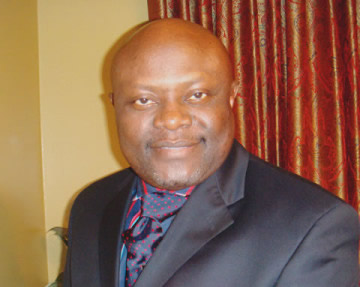
The bus ran into a heavy traffic around a spot called Majidun. A ride from Ibadan to Lagos was about two torturous hours on a hazardous single-track road. The Lagos-Ibadan Expressway had not yet been constructed. It was only in the dreams of the Nigerian Government at that season of life. Travelers heading to Lagos from many parts of Nigeria had to plough through Ikorodu and then, to the city that never sleeps.
Majidun is a territory named after an ancient river. Between superstition and hardcore truth, we have been told that flesh-eating and blood-drinking demons inhabit the river. Under mysterious circumstances, vehicles have plunged into River Majidun and so did humans. The latter was the story on this fateful day.
In the mid-1970s, anyone who had enough funds stashed up to purchase a Vauxhall car must have been living a comfortable life. Hundreds of people milled around a parked Vauxhall car discussing in hushed tones a horrible incident that had just occurred. A man had reportedly pulled over and dived into the dreaded waters in a suicide mission. Nobody knew why the man chose death over life, but something or someone must have driven him to make this choice.
Within the same week, another man and his wife had jumped off the Carter Bridge in the heart of Lagos into the roaring, massive lagoon. They didn’t survive. We never found out why they killed themselves either. These were good times when the country boomed with crude oil money. Even at that time, some people got tired and called it quits from this often-challenging life we live.
Nigerians are life-affirming. They love hosting and attending parties. Festivities and big celebratory gatherings are frequent. Our men and women love adorning big, flowing traditional attires strapped from head-to-toe to emblazon all manner of events. Celebrations are elevations in their spirits, bones and marrows. Nigerians have always faced hard times caused by bad governments and incompetent leaders. They do till date. And despite the excruciating challenges, my people still smile and laugh. The average Nigerian possesses the bulldog tenacity to keep going even with clearly insurmountable obstacles planted on his path.
A 2003 United Nations’ study of more than 65 countries published in the UK’s New Scientist magazine suggests that the happiest people in the world live in Nigeria. As recent as 2017, the World Happiness Report ranks Nigeria as number six on the ladder of happy people all over the world. But why are happy Nigerians hopping into the lagoon in suicide drives?
When 35-year-old medical doctor, Allwell Orji, jumped into the Lagos Lagoon on the Third Mainland Bridge recently, many people wondered why? Last January, a 19-year-old Verishima Unokyur, a student of Babcock University in Ilishan-Remo, took his own life in the home of his parents. In August last year, a manager with a commercial bank, Olisa Nwokobi, shot himself in Lagos over a bank loan debt that was impossible to settle.
These are stories that media searchlight has been able to capture and reveal to us. Many people across Nigeria are killing themselves. Of course, the prying eyes and sniffing noses of newsmen may have missed these incidents and that is why they are not reported.
In the US, about 50,000 people commit suicide. And they are not illegal immigrants from Mexico, Syria or Nigeria who fear they may be deported by the Donald Trump administration. Numbered among these class of people are celebrities and politicians who you would ordinarily describe as ‘happy and successful’. But what makes one man happy cannot be defined by other men. His source of inspiration unto happiness may only be known to him.
Life is tough today for many Nigerians that have no godfathers or helpers. Hungry men, angry women, famished families and an impoverished population will react to life differently. Majority of Nigerians may be able to deal with hard-times, but some aren’t strong enough to push through. Pushing selves into the lagoon is the consolatory conclusion for them.
Powerful and wealthy men and women all over the world have also quietly taken their own lives. Some factors that drive many to committing heinous crimes also push other people to suicide. Do we then blame the government for every man or woman that dives into the lagoon? No, we shouldn’t.
Although government interventions will not bring lasting solutions to end suicide, they will help. If our government will explore ways to eradicate hunger in the country, the suicide rate will assuage. Also, if state governors will pay the pensions of older people who have worked their hearts out for their governments, the suicide rate will drop. If thieves in leadership positions will only stop stacking up the people’s money in sewers, wells and septic tanks to satisfy their greed, the suicide rate will gradually dissipate. If infrastructures are in place, jobs are available for the unemployed, funds are available for small businesses to thrive, and industries are not flying out exiting Nigeria because of the prevalent unfriendly business environment, some people will still escape the wrath of premature death.
If you stumble on this treatise; there is a reason for it. And if you are contemplating suicide because of the hard times, you had better think twice. You mean more to the world than the meanness of these times. There is no human being that is exempt from trials and tribulations. We all have moments of sadness and joy. There are times when our spirits are lifted and moments of weakness. That is life. But bad times do change. So why kill yourself? You have the inner power to kill what is trying to drive you to give up on life. Tough times don’t last. You must determine to be tough as a nail and cruise through depressing times.
END

Be the first to comment